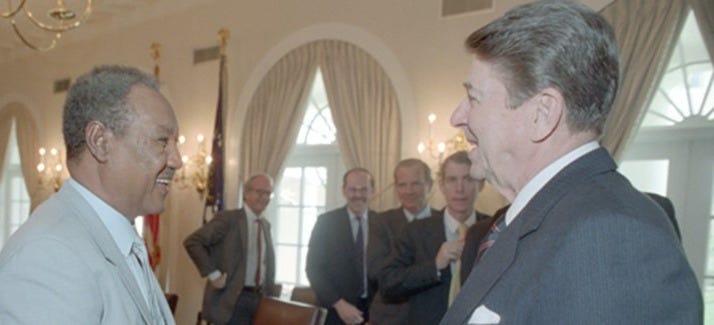
One April evening in 1985, Milt Bearden, the CIA’s Sudan station chief, answered the doorbell at his Khartoum home to find on his doorstep two Israelis who were remarkably calm given their predicament.
The pair, together with a third officer who arrived later that night, had been operating under non-official cover for the Mossad, the Israeli intelligence service. While establishing a foothold in Africa, they had been helping to coordinate the evacuation of thousands of Ethiopian Jews to Israel from refugee camps in Sudan, an Arab-dominated country with which the Jewish state had no diplomatic relations.
In a tightly controlled operation, the Mossad and the CIA had paid corrupt figures at the very top of Sudan’s government to ignore – and even to assist – the successful evacuation of virtually all the Jewish refugees. But that regime had just been toppled in a military coup, those leaders were in exile or prison, and one of them had sold out the Israeli spies and the location of their safe house to the new government, which was less well-disposed to the Jewish state than was its predecessor.
The mobs whose protests had sparked the coup were still in the streets, which were now also crawling with nervous soldiers and newly arrived Libyan gunmen.
Their cover identities as Western professionals blown, the Mossad officers had been forced to abandon their safe house in haste. In intelligence parlance, they were now in the wind.
The effort to save their lives was about to consume the CIA station in Khartoum.





